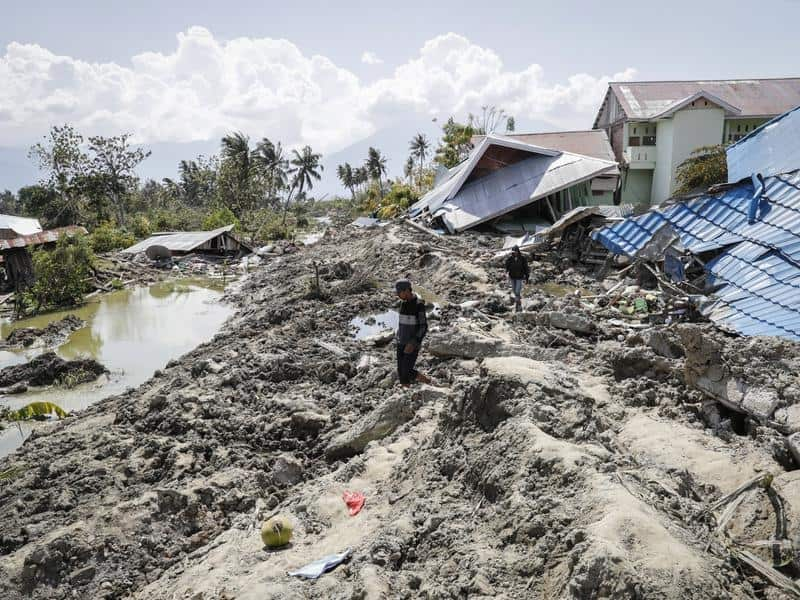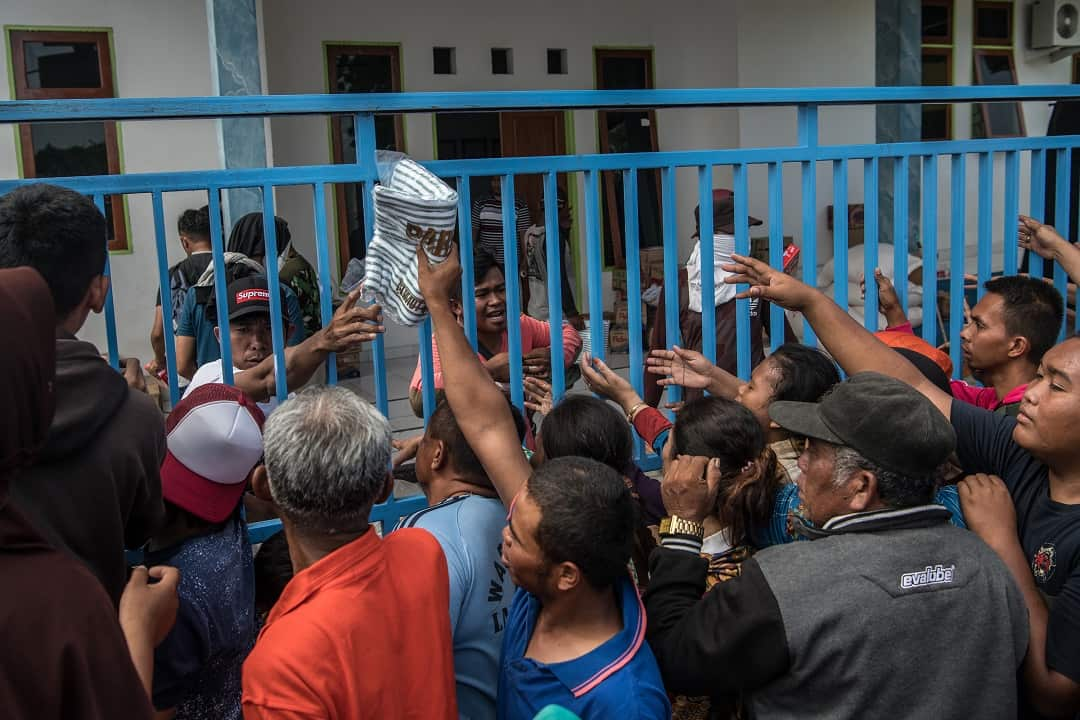A week after a major earthquake brought devastation to Indonesia’s Sulawesi island, the death toll has passed 1,500 and tens-of-thousands remain in urgent need of clean water, shelter and medical care.
Disaster management expert and aid worker Antony Balmain from Australian Red Cross arrived in the city of Palu on Friday where the 7.5 magnitude earthquake triggered a phenomenon called soil liquefaction, which turned the ground into a churning sea of mud.
He told SBS News some areas of Palu have been completely "obliterated" with more than 65,000 homes destroyed.
"There are areas here that have been completely wiped out, you can see the damage everywhere. It's going to be a very long road ahead," said Mr Balmain.
"Many of those who have lost their homes have nowhere to go, they are sleeping in the streets, it's really a very serious situation.
"There are people camping all over the place, there are people camping at the airport, there are people camping in the streets, and the airport itself is really badly damaged," he said.
"Many roads have been really badly damaged, it's going to take quite a lot of time to fix them and to get out to the more remote areas," said Mr Balmain.
The official death toll from the quake and tsunami it triggered stands at 1,558, but is expected to rise as more bodies are recovered in Palu, where most of the dead have been counted.
No one knows how many people were dragged to their deaths in the roiling quagmire in Petobo and nearby areas south of Palu, which were particularly hard hit by liquefaction.
The national disaster agency says 1,700 homes in one neighbourhood alone were swallowed up and hundreds of people killed.

Aftermath of an earthquake in the Petobo area outside Palu in Indonesia. Source: AAP
Hasnah, 44, from Petobo village has trouble remembering all of the dead relatives she’s trying to find in the tangled expanse of mud and debris that used to be her neighbourhood.
“More than half of my family are gone,” Hasnah told Reuters as she sobbed.
“I can’t even count how many. Two of my children are gone, my cousins, my sister, my brother in law and their children, all gone.”
“I saw our homes being sucked into the earth. The earth was like a blender, blending everything in its way,” said Hasnah, who like many Indonesians goes by only one name.
“I’m lucky to be alive but I feel like I don’t want to be.”
Red Cross teams have been in Indonesia since the earthquake hit and are now focusing their efforts on Palu, Sigi and Donggala.
They are supporting search and rescue efforts, transporting the deceased, helping the survivors with first aid and medical treatment, and handing out plastic sheeting for shelter and sleeping mats so people have somewhere dry to sleep.
Mr Balmain says it's a massive logistical task and the priority is to urgently provide clean water and medical care.
"There are big risks of water-borne diseases, like cholera, quite a lot of people are presenting to the red cross mobile medical clinics with diarrhoea and other serious health concerns. It is a very severe disaster here that is going to take a long time to recover from," he said.

Children and adults grab food being distributed by the military. Source: Getty Images
Share


